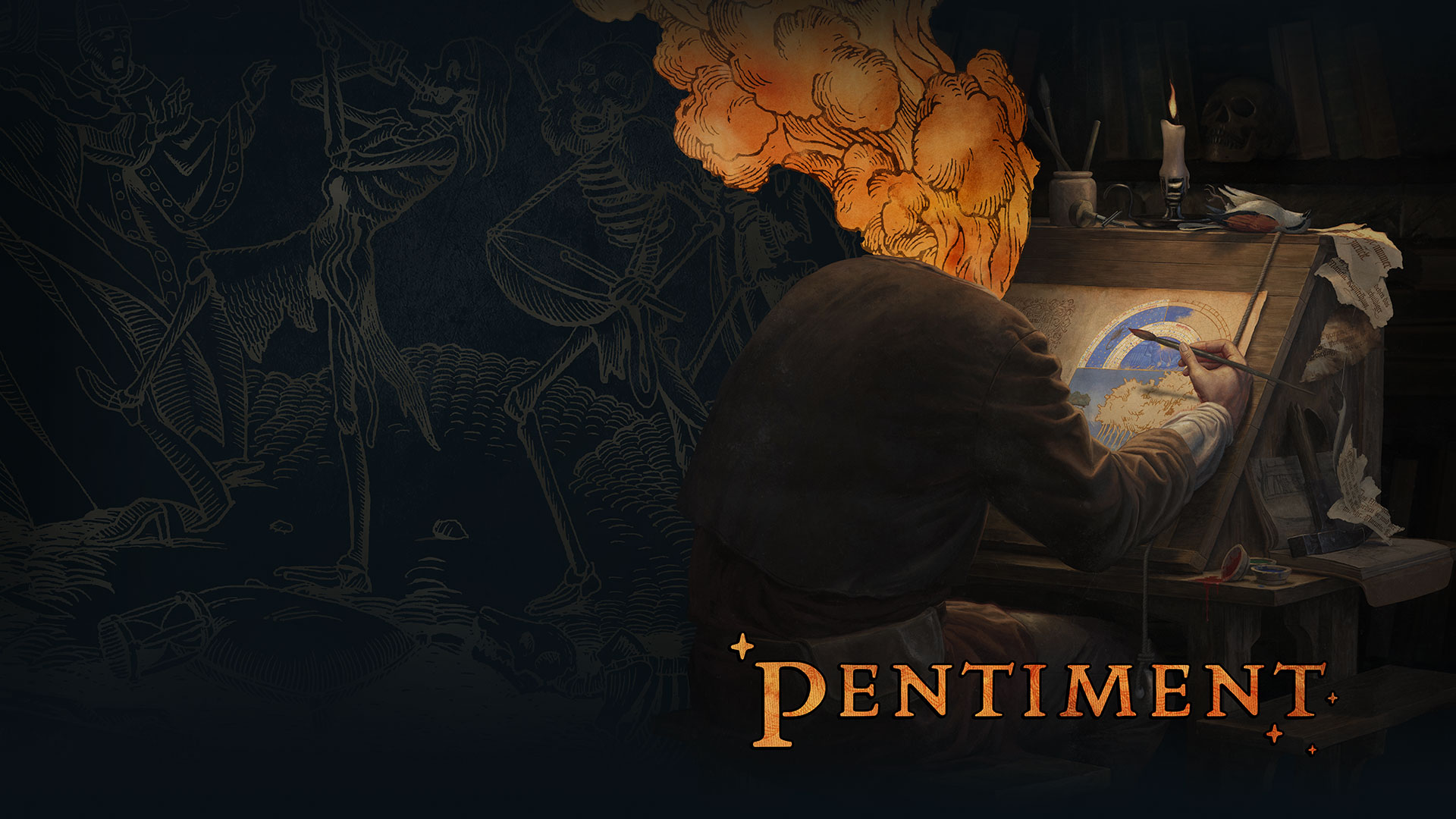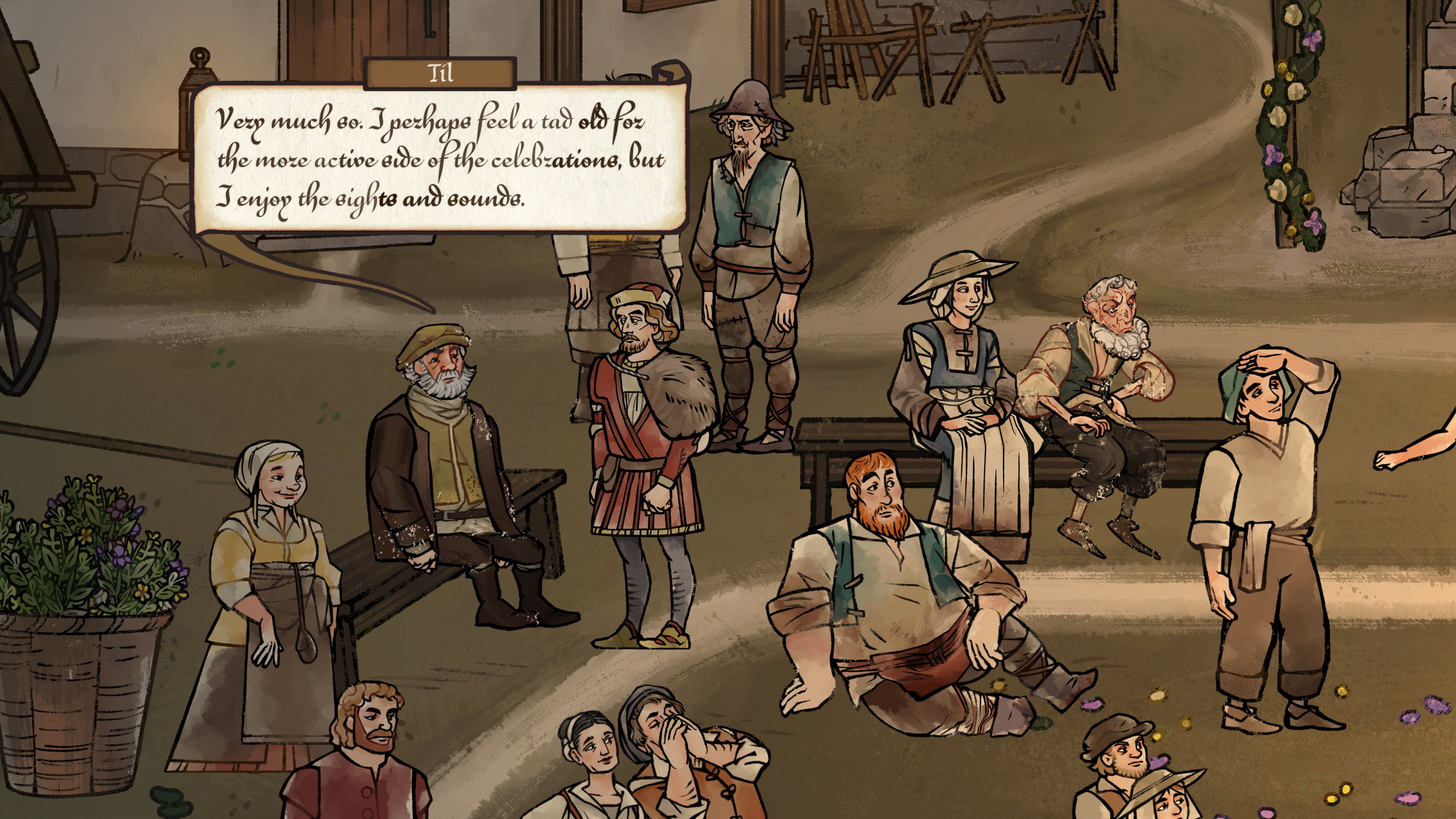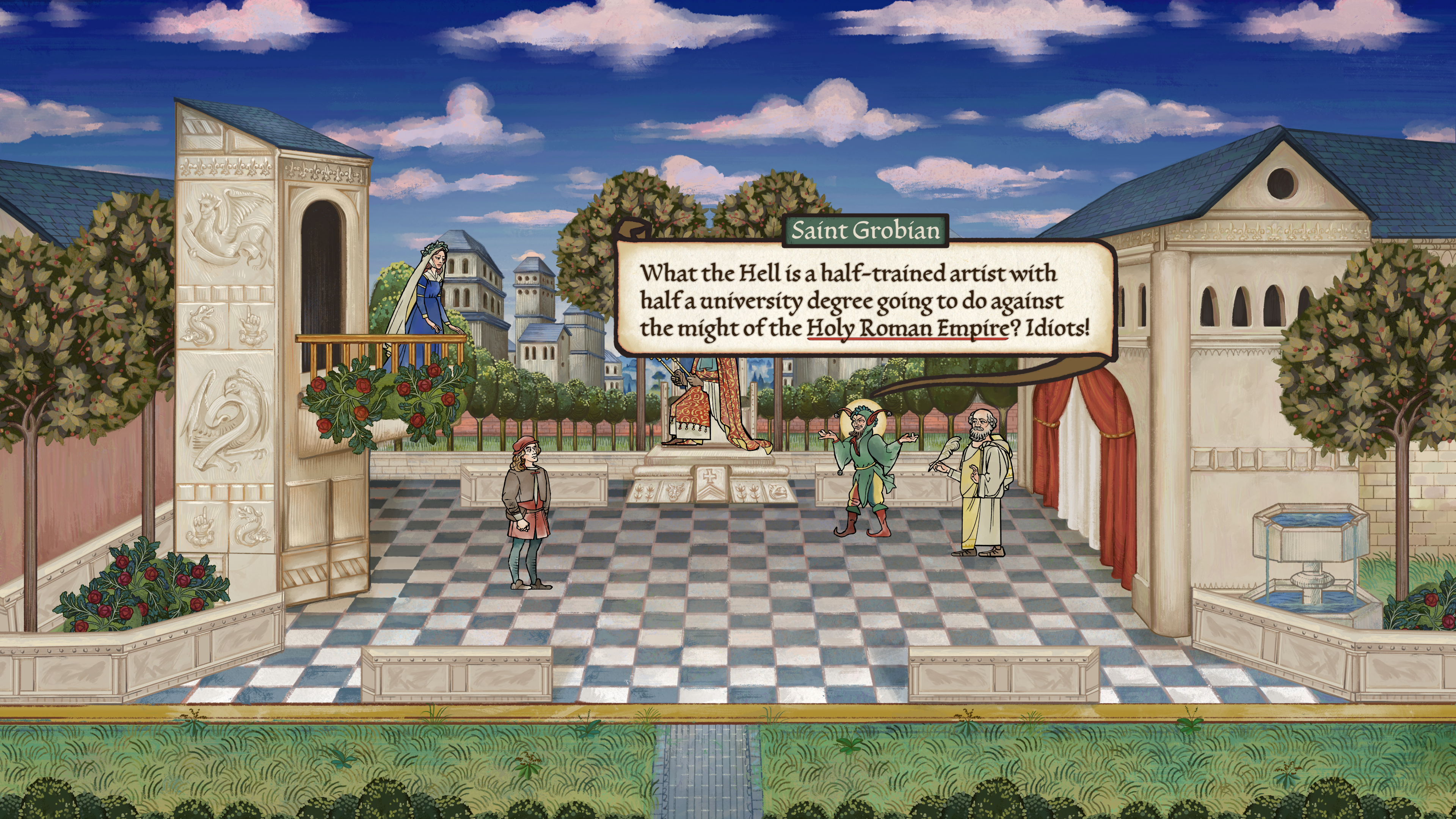GAME CLEAR No. 117 -- Pentiment
video games game clear obsidian xbox game studiosPentiment (2022, Xbox/PC)
Developer: Obsidian Entertainment
Publisher: Xbox Game Studios
Clear Platform: Xbox Series X
Clear Date: 2/1/23

It is written.
Obsidian is one of those development houses I generally trust, and whose roots Black Isle Studio roots endear them to me. When I saw they were making a game like this with this sort of aesthetic, I was enamored. Suffice it to say this is a game I went into expecting to like it. I was not disappointed.
In Pentiment, you play as Andreas Maler, a late-bloomer artist working in Bavaria on his masterpiece in the scriptorium of Kirsau Abbey and living with a peasant family in neighboring Tassing. Appropriate for its protagonist, Pentiment’s small world is rendered beautifully in a contemporary 16th-century art style that really is unlike anything I’ve seen before in video games. It’s that novelty that drew me in, but the game’s appeal does not stop there.
Pentiment starts with some conversations that help establish what kind of person Andreas is (which locks/unlocks various dialog options throughout the game). After a short period of normalcy and getting to know Andreas, his neighbors, and the monks of the abbey, the drama begins as a visitor to the abbey is murdered. Because a friend of Andreas is implicated, he takes it upon himself to investigate the murder and clear his friend’s name. This is mostly done by walking around Kirsau and Tassing and talking to people. There’s the occasional mini-game here or there, but the game is very much dialog driven.

But you don’t have all day to talk to everyone and look into every lead. There are certain activities that take time, and you only have a couple of days before the archdeacon comes to town to make his judgment. After you’ve built your case, you present your evidence to the archdeacon and whoever he was convinced was responsible pays for the murder with their life.
The game’s not over yet, though. A number of years later, Andreas returns to Tassing for personal reasons having earned the title of master artist. And wouldn’t you know it? Someone is killed before he continues on his way. The cycle begins anew.
Medieval Times
By guiding Andreas through his investigations, you’ll discover a truly convincing 1500s Bavarian town with a pleasing variety of people and perspectives (as well as the conflicts those bring). The peasants of Tassing live under the rule of the Kirsau Abbot, and rather begrudgingly so. There is also a small number of educated and/or wealthy people in town (Maler himself is arguably both) whose freedom from daily toiling lend them other biases. This class conflict creates constant tension and, without spoiling anything, forms a significant part of the plot of the game.
Obviously, religion also plays a major role as well, and not just because of the town’s religious rule. This matters of course, but it also affects things on scales both big and small. Locally, there is a clear generational gap in just how strictly residents adhere to Christianity. The elder generations still lean on and fiercely believe in older myths, while younger folks generally follow the church. As a player, you’ll have to choose just how religious Maler is and what exactly he believes in (or pretends to). Your choices will ingratiate you to some and alienate you from others. It’s a fascinating lens into religious attitudes at the time and is quite the change of pace for someone who leads as secular a life as I do.

But, of course, the most striking way the game sets the medieval tone is with its visuals. The artwork is truly terrific, but the attention to detail is what puts it over the top. Characters from different regions or of different ages are drawn in more region or time appropriate styles. Similarly, because all dialog is delivered through text, every character “speaks” using one of several fonts. Rudimentary handwriting is used for the dialog of most of the peasants, while educated people like Maler have a more delicate script. The monks and nuns of the abbey, meanwhile, use a blackletter, Gothic style. At times, Maler will meet someone whose station in life he assumes incorrectly at first. When he is corrected, the text in the dialog box is erased and rewritten in a more appropriate hand. Frankly, I just love that shit.
My glowing review of Obsidian’s job of building a convincing Middle Ages world does come with a significant caveat, which is that I am by absolutely no means an expert on the period myself. However, my faith in their efforts feels at least partially validated by the extensive list of cited works present in the game’s credits. Also, helpfully, any bits of contemporary knowledge the creators felt players may lack is helpfully explained via optional context menus when the need arises.
You Can’t Always Get What You Want
A great and beautiful world wouldn’t mean much for a walk-and-talk RPG-lite if the story sucked, though, but I’m pleased to report it does not. Having said that, while I did enjoy the main plot, it was certain characters and themes that carried it for me.
I don’t want to spoil much, but Maler’s story really hit home for me in a lot of ways, especially since I’m at a similar point in life that he is for a large portion of the game. Something that Maler struggles with internally is his dissatisfaction with his life (a matter he often debates with himself through some very enjoyable dream sequences). He reflects on various key moments and people in his life and whether or not he’s done right by them or is indeed living the life he once hoped he might. A lot of his concerns are “off camera” so to speak and regard the life he left behind in Nuremberg. We never see these people or this side of his life, but that’s okay because his lamentations are such a great analog for how it feels to play the game.

Because of the ambiguity of the murder cases and the limited time you have to investigate them, you never get full closure on whether or not you really found the right perp or did the right thing. But your choice alters the history of Tassing forever and you just have to live with it. But besides the murder cases, there are other instances when talking to townspeople or mediating disputes that a decision you make or advice you give will change someones life — sometimes adversely. Despite your best intentions, you can’t do everything perfectly, and you have to make decisions with the information you have at the time. Dealing with that is not just a theme of the game for its characters, but a feeling evoked by playing it.
But again, maybe some of those notions just work for me because of where my brain is at at this particular moment in time. Or maybe they’re just pretty good? Play Pentiment and find out.